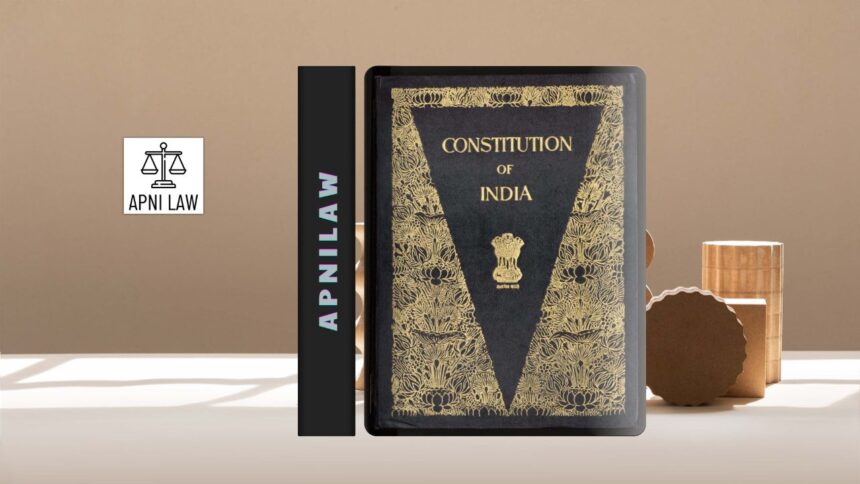Introduction
The National Commission to Review the Working of the Constitution (NCRWC) submitted its final report in 2002 under the chairmanship of Justice M.N. Venkatachaliah. The Commission carefully examined India’s federal system and the relationship between the Centre and the States. Its recommendations aimed to strengthen cooperative federalism, enhance mutual trust, and ensure a fair balance of power between different levels of government.
What Did The NCRWC Emphasize About Cooperative Federalism?
The NCRWC strongly advocated for cooperative federalism as the foundation of India’s governance. It highlighted that cooperation between the Union and the States is essential for national unity and smooth administration. The Commission believed that both levels of government must work together through mutual consultation, dialogue, and respect for each other’s authority. This approach would help in resolving common issues, preventing conflicts, and promoting shared national objectives without compromising the autonomy of individual states.
What Were The Recommendations About The Role Of The Governor?
The NCRWC proposed several reforms to make the role of the Governor more impartial and effective. It recommended that the appointment of Governors should be made after consulting the Chief Minister of the concerned state. The tenure of Governors should be fixed to ensure stability and independence from political influence. The Commission also suggested that Governors should act as neutral constitutional heads and use their discretionary powers only in rare and justified circumstances. These steps were meant to reduce political bias and ensure that the office of the Governor serves as a bridge between the Centre and the State, not as an agent of central interference.
How Did The NCRWC Propose To Reform Article 356?
Article 356, which allows the imposition of President’s Rule in a state, has often been criticized for misuse. The NCRWC recognized this and recommended stricter conditions for its application. The Commission suggested that before invoking Article 356, the Centre must give the state an opportunity to explain and attempt corrective measures. The Governor’s report, which triggers this provision, should be detailed, objective, and based on verified facts. The Commission emphasized that Article 356 should be used as a last resort and never for political purposes. This recommendation was intended to protect the autonomy of state governments and uphold the spirit of federalism.
Why Did The NCRWC Suggest Expanding The Concurrent List?
The NCRWC proposed expanding the Concurrent List to include subjects like disaster management and social security. This recommendation was made to encourage cooperative governance and enable both the Centre and the States to work together on critical national concerns. The addition of such topics would help ensure coordinated responses to emergencies, improve efficiency, and maintain consistency in policy implementation across the country.
What Were The Suggestions About Inter-State Institutions?
The Commission highlighted the importance of strengthening inter-state mechanisms to promote cooperation among states. It suggested granting a clear constitutional mandate to the Inter-State Council, making it a more active forum for dialogue between the Centre and the States. The NCRWC also recommended the creation of an Inter-State Trade and Commerce Commission under Article 307. This body would help regulate trade disputes, ensure free movement of goods and services, and promote economic harmony across regions. Strengthening such institutions, the Commission believed, would enhance coordination and minimize friction between different levels of government.
What Did The NCRWC Say About Financial And Legislative Relations?
The NCRWC acknowledged that financial dependence often undermines the autonomy of state governments. It recommended greater decentralization and devolution of financial powers to ensure that states have sufficient resources to manage their responsibilities effectively. The Commission also stressed the importance of consultation between the Centre and States while formulating legislation on subjects that affect both. It encouraged uniformity in national policies but also recognized the need to respect regional diversity. These recommendations sought to create a balanced framework where both national and state interests could coexist harmoniously.
How Did The Commission View Emergency Provisions?
The NCRWC advised caution and restraint in using emergency provisions. It recommended clearer guidelines and checks to prevent political misuse of these powers. The Commission believed that emergencies should be declared only when absolutely necessary and after transparent evaluation. Safeguarding federal balance during emergencies was seen as essential to maintaining public trust in constitutional governance. These reforms were intended to ensure that emergency powers remain a tool for national stability, not for political control.
How Do NCRWC Recommendations Compare With Previous Commissions?
Many of the NCRWC’s recommendations built upon earlier reports such as the Sarkaria Commission. However, the NCRWC took these ideas further by emphasizing cooperative federalism, transparency, and accountability. It sought to modernize Centre-State relations by introducing new institutions and refining old mechanisms. The focus was not just on reducing central dominance but also on fostering partnership and coordination. The Commission’s approach reflected the evolving needs of a diverse and rapidly developing nation that requires flexibility as well as unity in governance.
What Is The Significance Of The NCRWC’s Federalism Reforms Today?
The recommendations of the NCRWC remain highly relevant in modern India. Issues like fiscal imbalance, political misuse of Article 356, and inter-state disputes continue to challenge federal harmony. Implementing these suggestions could help build stronger democratic institutions and reduce friction between the Centre and States. The emphasis on cooperative federalism aligns well with the current goals of inclusive growth, regional development, and shared responsibility.
How Far Have These Recommendations Been Implemented?
While some aspects of the NCRWC’s report have influenced policy debates and institutional reforms, many recommendations remain unimplemented. Proposals such as fixed tenure for Governors, stricter Article 356 guidelines, and enhanced Inter-State Council functions have not been fully realized. However, the principles of cooperative federalism are being increasingly recognized through initiatives like the NITI Aayog and the Goods and Services Tax Council. These platforms embody the spirit of consultation and collaboration that the NCRWC envisioned.
For any specific query call at +91 – 8569843472
Conclusion
The NCRWC’s recommendations on federalism and Centre-State relations represent a forward-looking blueprint for strengthening India’s democratic structure. By advocating for cooperative federalism, balanced power distribution, and transparent decision-making, the Commission aimed to make governance more inclusive and efficient. Its suggestions on the Governor’s role, Article 356 reforms, and inter-state cooperation continue to provide valuable guidance for policymakers. Although implementation remains incomplete, the NCRWC’s vision of a balanced and cooperative federal system still serves as a guiding principle for India’s constitutional evolution.








